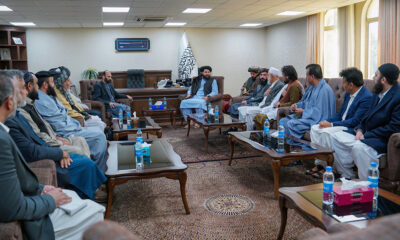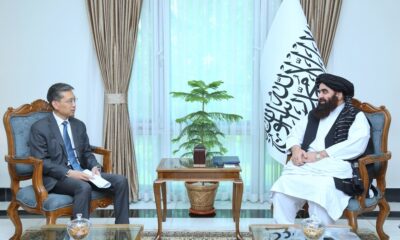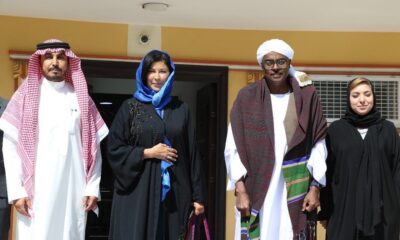Business
IEA signs Amu River basin oil extraction contract with Chinese company
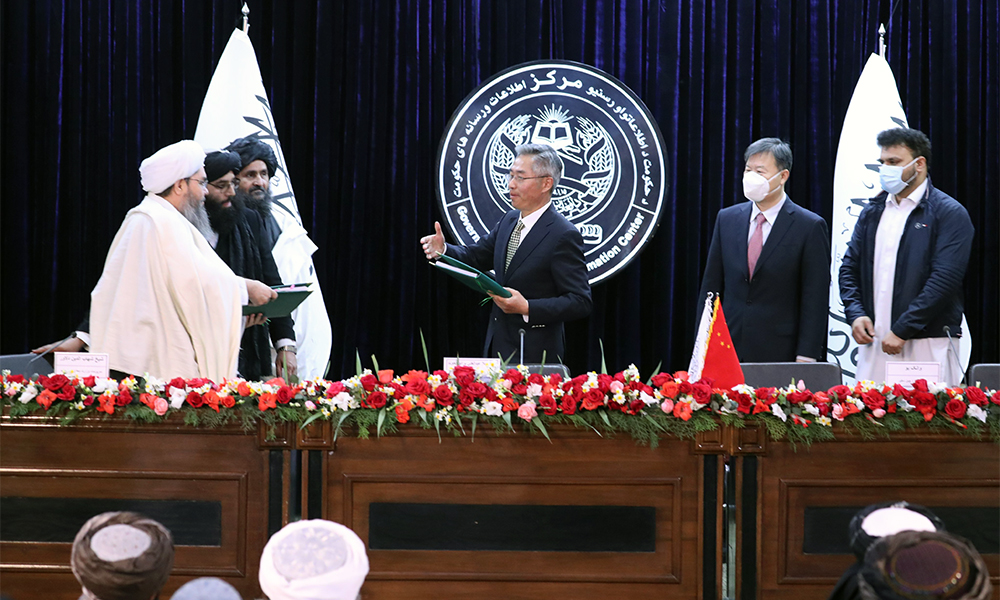
Islamic Emirate of Afghanistan’s (IEA) officials signed a contract on Thursday with China’s CAPEIC (Xinjiang Central Asia Petroleum and Gas Co) Company for the extraction of oil in the Amu River basin, which covers a large area across parts of three northern provinces.
The signing ceremony was held at the Government Information and Media Center (GMIC) in Kabul, in the presence of Mullah Abdul Ghani Baradar Akhund, the Economic Deputy of the Prime Minister, and China’s ambassador to Kabul.
Speaking at the event, Sheikh Shahabuddin Delawar, the Minister of Mines and Petroleum, said: “According to the order of the Supreme Leader and the guidance of the Prime Minister and the Economic Deputy of the Ministry, today we will sign an oil extraction contract with a Chinese company.”
The ministry said oil will be extracted from an area covering 4,500 square kilometers across parts of Sar-e-Pul, Jawzjan and Faryab provinces.
Delawar said the rate of oil extraction will be from 1,000 to 23,000 tons per day and the company will invest up to $150 million dollars a year, which will increase to $540 million dollars in three years.
According to the contract, the Islamic Emirate will own a 20 percent share in the oil fields, but that in time this percentage will increase to 75 percent.
Delawar also said that 3,000 jobs will be created for Afghans. However, if skilled labor is not available in Afghanistan, then China will be able to import workers, he added.
He also said that it was agreed that if the Chinese company does not fulfill all its requirements within a year, the contract will automatically be canceled.
Mullah Abdul Ghani Baradar Akhund also spoke at the event and said that in the past year, work has been done to promote development in the country.
“Recently, several projects were approved by the Economic Commission, and with their implementation, fundamental steps will be taken regarding the prosperity of the country and public welfare,” Baradar said.
He said the signing of Thursday’s contract was an important step towards the country obtaining self-sufficiency. He also called on the Chinese company to work in accordance with international standards and to provide local people with public benefits.
Baradar also told the ministry of mines to closely monitor developments at the oil field so as to ensure the Chinese company fulfills its obligations.
China’s Ambassador to Afghanistan Wang Yu meanwhile said: “This contract is important for the economic growth and self-sufficiency of Afghanistan and is a good example of cooperation and interaction between the two countries.”
Wang asked the contracting company to carefully perform the assigned tasks according to the provisions of the contract and also asked the ministry to provide the framework for the effective implementation of the contract and to work closely with the contracting company.
Business
Afghanistan starts exporting via railway to Turkey

The Ministry of Interior says that Afghanistan has started exporting goods to Turkey via the Herat-Khaf railway line.
In a post on X, the ministry said: “Afghanistan’s exports to Turkey started in a calm atmosphere through the Herat-Khaf railway line.”
The ministry added that one train will run daily for a month and then two trains will run daily.
According to the ministry, the security of Khaf-Herat railway line is provided by the guards of the National Public Protection Agency.
Khaf-Herat railway project not only connects Iran and Afghanistan by rail, but also completes a 2,000-kilometer route along the east-west rail corridor from China, through Uzbekistan, to Afghanistan, to Iran, and on to Turkey and Europe.
As a landlocked country, this railway network will provide a safe route to connect with Europe via Iran’s railway network and Iran’s southern ports.
This railway line is strategic for trade between Iran and Afghanistan and will allow six million tons of goods to be sent between the two countries.
Business
Afghanistan, Kazakhstan to hold joint expo in Kabul
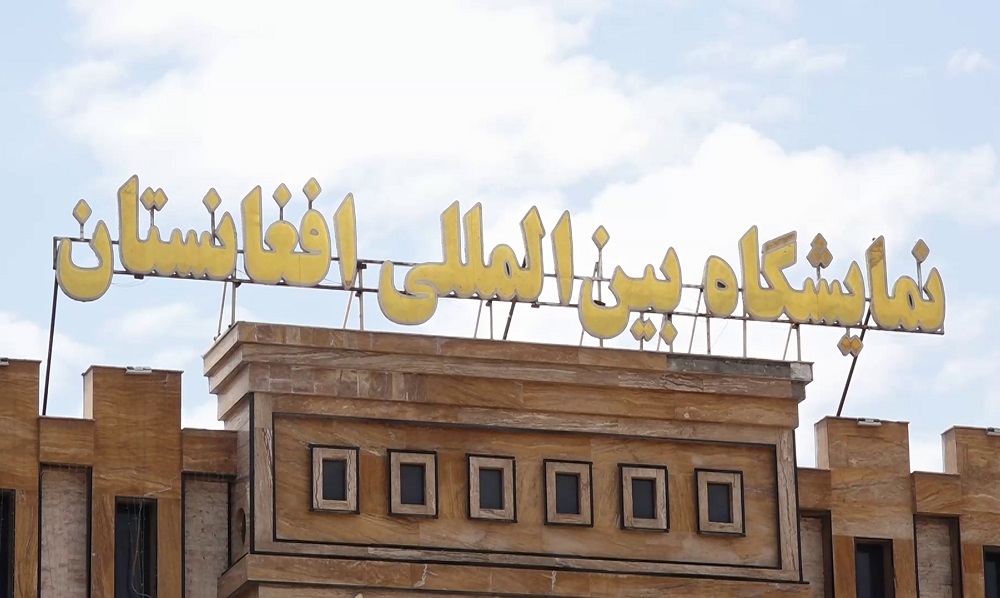
A joint expo between Afghanistan and Kazakhstan will be held in Kabul in the next four days, officials said on Sunday.
Officials of the Ministry of Industry and Commerce said that the two-day expo will be held for the purpose of expanding and strengthening trade relations between the two countries.
“This expo will be held as a follow-up of the Kazakh-Afghan international expo, which was held in the city of Astana, Kazakhstan, with the participation of a large delegation of the government and the private sector of the Islamic Emirate of Afghanistan,” Abdulsalam Javad Akhundzadeh, the spokesman of the Ministry of Industry and Commerce, said.
“At this expo, domestic products from different sectors of Afghanistan and the Republic of Kazakhstan will be put on display for two days.”
According to officials, 40 large Kazakh companies, and 40 large Afghan companies will exhibit their products.
Mohammad Saber Latifi, head of the Afghanistan International Expo Center, said that fruits, minerals and commercial services will be displayed at the expo.
During the expo, various memorandums of understanding for the trade of goods are also expected to be signed by companies.
Business
Afghanistan’s economic prospects are bleak: World Bank

The absence of GDP growth coupled with declining external financing avenues for off-budget expenditures paint a bleak picture of Afghanistan’s economic prospects, the World Bank said.
After a severe 20.7 percent GDP contraction in 2021, the Afghan economy contracted further by 6.2 percent in 2022, the bank said in a report.
“While Afghanistan’s agricultural and subsistence economy, including illicit opium production, provided some resilience in rural areas, higher prices, reduced demand, lower employment, and disruptions to services had severe impacts across the country,” it said.
The proportion of households that did not have enough income to meet basic food needs more than doubled from 16 percent to 36 percent in this period, according to the bank.
In the context of deep concerns about the policies of the Islamic Emirate of Afghanistan (IEA), including restrictions imposed on women and girls, the international community, including the World Bank, recalibrated its approach to supporting Afghanistan: first to providing humanitarian support and then to providing off-budget support for basic service delivery and livelihoods.
However, IEA moved to restore domestic revenues, which reached $2.2 billion or 15 percent of GDP in 2022. “Nevertheless, overall economic activity remained depressed, unemployment stayed high, and the banking sector was dysfunctional due to constraints on international transfers and concerns about liquidity and solvency.”
World Bank said that Afghanistan’s economic outlook remains uncertain, with the threat of stagnation looming large until at least 2025. “This economic stagnation will deepen poverty and unemployment, with job opportunities expected to decrease and food insecurity expected to increase.”
The bank noted that for a sustainable future, Afghanistan needs to focus on its comparative advantages, particularly in the agricultural and extractive sectors. Agriculture could be a key driver of growth and poverty reduction, with the potential to create jobs, it added.
-

 Business4 days ago
Business4 days agoCommerce ministry inks 10 MoUs to boost development of small and medium-sized businesses
-

 Sport4 days ago
Sport4 days agoRashid Khan threatens BBL pullout after Australia postpones Afghanistan T20I series
-

 Latest News4 days ago
Latest News4 days agoOver 6,000 acres of land cleared of poppies in Badakhshan
-

 Latest News4 days ago
Latest News4 days agoMSF ‘deeply concerned’ over new phase of deportations of Afghans from Pakistan
-

 Sport3 days ago
Sport3 days agoAfghanistan Champions League kicks off with grand opening ceremony
-

 Latest News2 days ago
Latest News2 days agoPakistan’s frontiers minister stresses ‘dignified’ return of Afghan refugees
-

 Regional4 days ago
Regional4 days agoIran’s foreign minister downplays drone attack, says Tehran investigating
-

 Latest News4 days ago
Latest News4 days agoTen people killed by floods in Helmand




